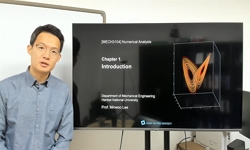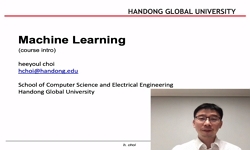This study introduces a novel approach for identifying potential failure risks in missile manufacturing by leveraging Quality Inspection Management (QIM) data to address the challenges presented by a dataset comprising 666 variables and data imbalance...
http://chineseinput.net/에서 pinyin(병음)방식으로 중국어를 변환할 수 있습니다.
변환된 중국어를 복사하여 사용하시면 됩니다.
- 中文 을 입력하시려면 zhongwen을 입력하시고 space를누르시면됩니다.
- 北京 을 입력하시려면 beijing을 입력하시고 space를 누르시면 됩니다.

생산 및 제조 단계의 검사 데이터를 이용한 유도탄 탐색기의 고장 분류 연구 = Study on Failure Classification of Missile Seekers Using Inspection Data from Production and Manufacturing Phases
한글로보기https://www.riss.kr/link?id=A109127011
- 저자
- 발행기관
- 학술지명
- 권호사항
-
발행연도
2024
-
작성언어
Korean
- 주제어
-
등재정보
KCI등재
-
자료형태
학술저널
- 발행기관 URL
-
수록면
30-39(10쪽)
- DOI식별코드
- 제공처
-
0
상세조회 -
0
다운로드
부가정보
다국어 초록 (Multilingual Abstract)
This study introduces a novel approach for identifying potential failure risks in missile manufacturing by leveraging Quality Inspection Management (QIM) data to address the challenges presented by a dataset comprising 666 variables and data imbalances. The utilization of the SMOTE for data augmentation and Lasso Regression for dimensionality reduction, followed by the application of a Random Forest model, results in a 99.40% accuracy rate in classifying missiles with a high likelihood of failure. Such measures enable the preemptive identification of missiles at a heightened risk of failure, thereby mitigating the risk of field failures and enhancing missile life. The integration of Lasso Regression and Random Forest is employed to pinpoint critical variables and test items that significantly impact failure, with a particular emphasis on variables related to performance and con- nection resistance. Moreover, the research highlights the potential for broadening the scope of data-driven decision-making within quality control systems, including the refinement of maintenance strategies and the adjustment of control limits for essential test items.
동일학술지(권/호) 다른 논문
-
중소유통기업지원을 위한 상품 카테고리 재분류 기반의 수요예측 및 상품추천 방법론 개발
- 한국산업경영시스템학회
- 이상일
- 2024
- KCI등재
-
중첩된 그래프 구조를 이용한 VTOL 드론의 비행경로 구조 표현과 시간속성 분석
- 한국산업경영시스템학회
- 유영웅
- 2024
- KCI등재
-
진동 아날로그 신호 기반의 이상상황 탐지를 위한 기계학습 모형의 성능지표 향상
- 한국산업경영시스템학회
- 김재훈
- 2024
- KCI등재
-
센서 데이터의 시계열 특성을 고려한 딥러닝 모델 기반의 공압 실린더 고장 감지 시스템 구현
- 한국산업경영시스템학회
- 김병수
- 2024
- KCI등재




 ScienceON
ScienceON 코리아스칼라
코리아스칼라






